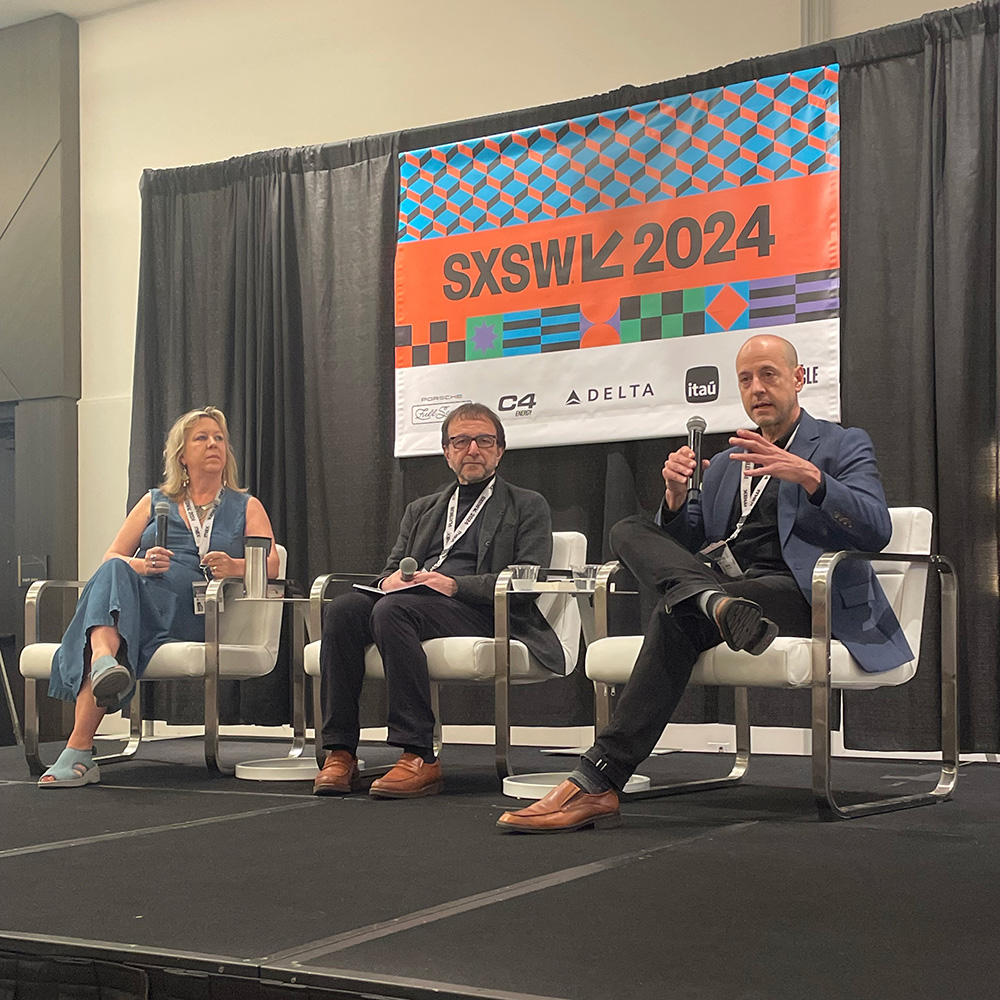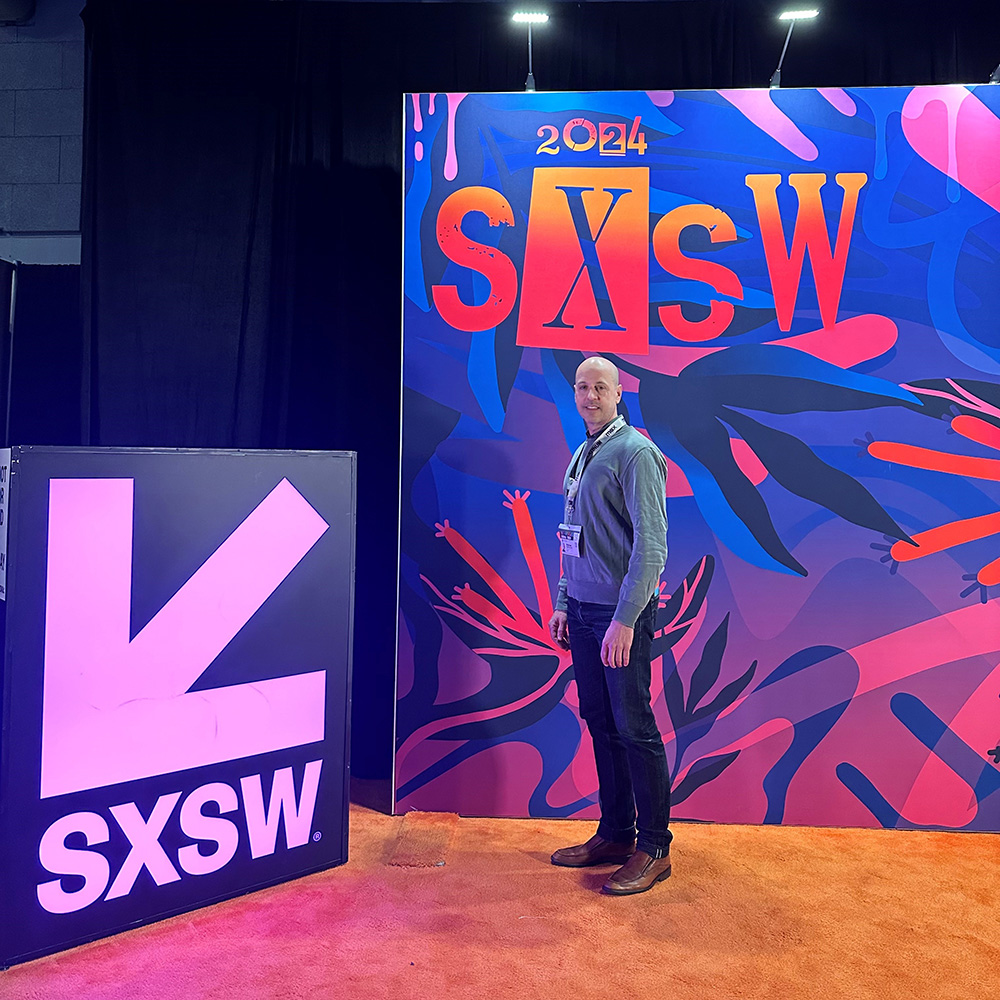By: Andy Scharenberg, M.D., co-founder and Chief Executive Officer
Where the arts and science meet
I had the opportunity to speak on a panel at one of the largest conferences hosted in the U.S. each year: SXSW (South by Southwest®). Founded in 1987, SXSW is an event that brings together thousands of creative minds from around the world to the city of Austin, Texas, to meet, learn and share ideas. What started as a conference focused on the music and film industries has evolved into an event that draws attention to the intersection of technology and the arts.
I have always believed that science at its root is an artform. At its most fundamental level we design and create new science that has the power to deeply impact those around us. That is why I was excited to participate in SXSW’s Health & MedTech track this year, which aims to highlight emerging new ideas that address how technological and social changes are impacting the field of medicine. While there, I discussed Umoja’s mission to expand access to life-saving cell therapies by leveraging a tool that people typically see as dangerous – viruses.
Reimagining viruses as medicine
In 2020, the world quickly became aware of the impact viruses can have on human health. For me, this realization came early on during my time as a physician and pediatric immunologist. I was treating children who were becoming sick due to the heavy burden of infections. These first-hand experiences motivated me to develop novel treatments for patients who had genetic defects in their blood cells, making them unable to fight off those infections. This led me to study the different types of technologies that could facilitate gene transfer to replace the defective gene in these patients.
After many years at the bedside treating patients, mentoring students, and advancing new technologies at innovative biotech companies, at about 55 years old I decided to take one last giant swing of the bat: I co-founded Umoja with the goal of advancing practice-changing cell therapies. At Umoja, we are pioneering a way of using viral vectors to deliver new genes into tumor fighting T cells to treat cancer. Through years of work by many in the field, we know how our T cells recognize and attack cancer cells. We can replicate this by manually placing a new gene, called a chimeric antigen receptor (CAR), into our T cells to train them to recognize cancer and kill it – which we now call CAR T cell therapy.
CAR T cell therapies are very effective, however, only one in five people can access the treatments. At Umoja, we have set out to solve this problem. This has required a fundamental change in how we deliver CAR T cell therapies to patients. Rather than removing cells from a patient’s body before spending a month manipulating them in a laboratory, we have engineered a way to deliver the CAR gene directly to the patient’s T cells in vivo using a viral vector. These versions of viruses are the perfect vehicle for transferring a piece of genetic information into a cell to reprogram it. Knowing this, we have modified lentiviral vectors in a way that allows them to do the necessary gene transfer inside the patient, delivering the CAR gene, so that the patient can manufacture their own cancer-fighting therapy inside their body.
We are currently manufacturing our viral vectors, which are used in our gene delivery platform called VivoVec™, at our Colorado facility, The CLIMB, and look forward to initiating our first clinical trials this year. Our mission is to overcome the limitations of approved CAR T cell therapies including the challenges of ex vivo manufacturing, difficult administrative processes that are a barrier to care, and the limited reach of current treatments. What I have come to realize over the course of my medical career, and life, is that we are all touched by serious medical issues at one point or another – at Umoja, one point we emphasize over and over is that patients are waiting.
Listen to the SXSW panel “From Adversary to Ally: Reimaging Viruses As Medicines” featuring Andy Scharenberg, M.D., Steffanie Strathdee, Ph.D., and moderator Vincent Racaniello, Ph.D. here:

Andy on the stage at SXSW 2024

Andy at SXSW 2024